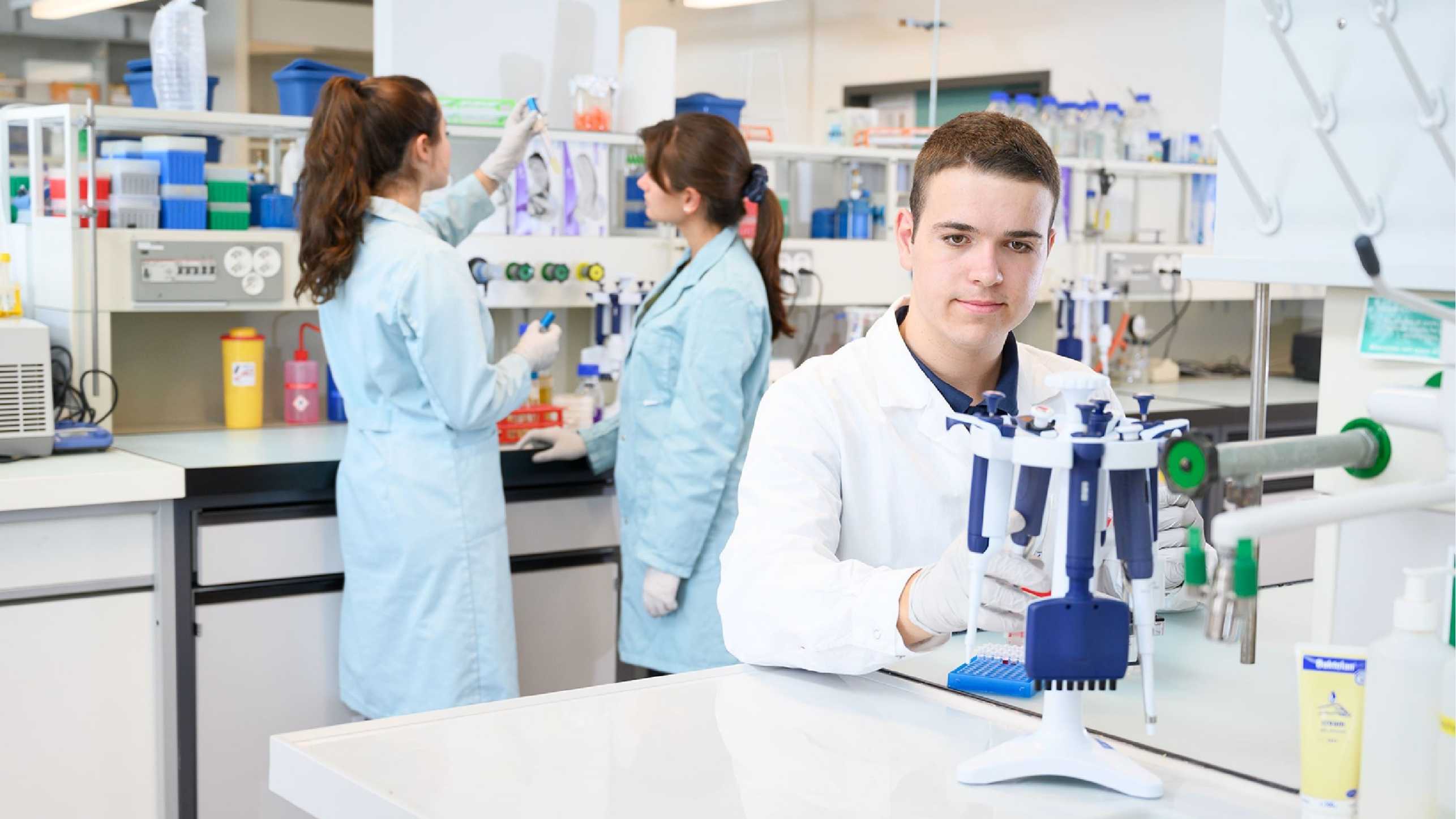Laboratory technician in Biology

About the apprenticeship in general
In order to be able to successfully complete the apprenticeship as laboratory technician, good performance in the subjects of Biology, Chemistry, English and Mathematics is required. Enjoyment of scientific issues, the ability to work in a team, a good sense of observation as well as patience are further prerequisites. Fine motor skills, reliability, accuracy, diligence and cleanliness round off the ideal profile of a laboratory technician.
The apprenticeship as a laboratory technician takes three years. The practical training content is strongly dependent on the respective training laboratory. Specializations are possible in many fields, such as microbiology, plant genetics, medical diagnostics, etc. In addition to the subject-specific training, laboratory and equipment maintenance are further focal points of the training. Computer work is an important part for information retrieval, data evaluation and documentation as well as for controlling analytical devices.
The apprentices acquire the theoretical knowledge during two days per week at the vocational training school. The vocational matura (BMS) can be attended part-time and lasts 4 years (completion of the apprenticeship after 3 years, then 1 additional year of BMS). Alternatively, the BMS can also be attended as a full-time course after the apprenticeship.
The apprenticeship also includes two practical courses in the teaching lab, which take place in the 1st and 2nd year of the apprenticeship. They form the link between theory and practice.
The apprenticeship at ETH
In the 1st semester, the practical course takes place in the teaching lab. It serves to create a solid foundation for further work in the laboratory. The apprentices learn which hazards have to be considered in the laboratory and how to deal with them. They also get to know the infrastructure of a laboratory and learn the basic working methods. In preparation for work in the various research laboratories of ETH Zurich, advanced working methods and knowledge are introduced in an additional course.
Following the basic training, the apprentices move to the first rotation place in a research laboratory, which lasts until the end of the 2nd semester. For the 3rd and 4th semester, a rotation to a new research laboratory takes place. During this time, another practical course takes place, in which project-oriented work methods are learned. A Chemical synthesis course in the chemistry teaching lab expands the apprentice's experience.
The 4th and 5th semesters are spent in the third research laboratory. There they will also take the practical final examination (QV).
The rotation places at ETH are spread over many different institutes in various research areas. For example, it is possible to gain insight into areas such as molecular health sciences, agricultural sciences, microbiology, plant biochemistry and many more.
Are you interested in an apprenticeship as a laboratory technician specializing in biology?
ETH Zurich offers a wide range of taster opportunities and information events: https://ethz.ch/de/die-eth-zuerich/arbeiten-lehren-forschen/berufsbildung/lerne-deinen-traumberuf-kennen.html.
The application window for apprenticeship positions opens in August and can be reached via the following link: https://ethz.ch/de/die-eth-zuerich/arbeiten-lehren-forschen/berufsbildung/deine-bewerbung.html.
